Transform Your Digestive Health!
If you’ve ever struggled with bloating, indigestion, or irregular bowel movements, you’re not alone.
Gut health is a cornerstone of overall wellness, and taking care of it can revolutionize your energy levels, mood, and immune system.
Whether you’re looking for digestive enzymes to support nutrient absorption, strategies for clean eating, or the role of exercise in gut health, this guide has you covered.
Disclaimer: This article is for informational purposes only and is not intended to provide medical advice, diagnosis, or treatment.
Always seek the advice of your physician or other qualified health provider with any questions you may have regarding a medical condition.
1. Digestive Enzymes: Your Secret Weapon Against Digestive Discomfort
For anyone who feels weighed down after meals or struggles with nutrient absorption, digestive enzymes are a game-changer.
Designed to help your body break down food efficiently, these supplements target specific issues like gas, bloating, and slow digestion.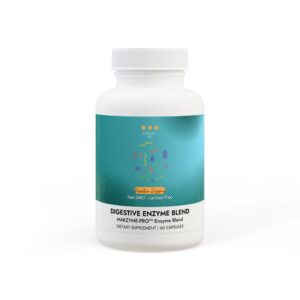 Key Features:
Key Features:
Helps break down macronutrients (proteins, carbs, and fats) into absorbable forms.
Reduces bloating, gas, and post-meal discomfort.
Supports nutrient absorption for improved energy levels and vitality.
Available in formulations tailored to specific diets (e.g., vegetarian, keto-friendly).
Real-Life Example:
Lesley, a busy mom with gluten sensitivity, found herself constantly tired and bloated after meals.
She started taking a broad-spectrum digestive enzyme containing protease, amylase, and lipase.
Within weeks, she noticed her post-meal bloating disappearing and felt energized enough to play with her kids after dinner. For Lesley, digestive enzymes were the missing link in her wellness routine.
2. Clean Eating: Nourish Your Gut Naturally
If you feel overwhelmed by digestive issues like inflammation or irregularity, clean eating might be the reset your gut needs.
By focusing on whole, minimally processed foods, you can create a thriving environment for beneficial gut bacteria.
Key Features:
- Eliminates inflammatory triggers like refined sugars and artificial additives.
- Provides essential nutrients to fuel gut microbiota.
- Improves digestion and reduces bloating naturally.
- Encourages balanced blood sugar levels and sustained energy.
Real-Life Example:
Michael, a corporate professional, used to rely on processed snacks and takeout meals. His constant indigestion and sluggishness led him to try clean eating. By swapping fast food for fresh salads, lean proteins, and fermented foods like kimchi, Michael saw a remarkable change.
His energy levels soared, and his digestion became regular—proof that clean eating was more than just a trend; it was a lifestyle shift.
3. Exercise: Movement That Powers Your Gut
Did you know that regular physical activity can significantly improve your digestion? Exercise stimulates gut motility, helping food pass through your digestive tract efficiently. If you’ve been battling constipation or general digestive sluggishness, adding movement to your routine could be the answer.
Key Features:
- Enhances gut motility, reducing issues like constipation.
- Promotes a balanced gut microbiome.
- Reduces stress, which is linked to digestive disturbances.
- Boosts circulation, supporting nutrient delivery and detoxification.
Real-Life Example:
Emma, a freelance writer, struggled with chronic constipation due to her sedentary lifestyle.
After incorporating a daily 30-minute walk and occasional yoga sessions, she noticed a significant improvement in her gut health.
Her digestion improved, and she felt less bloated throughout the day. For Emma, exercise wasn’t just about fitness—it was a tool for digestive wellness.
4. Probiotics: Cultivate a Healthier Gut Microbiome
If you’ve been dealing with frequent digestive upsets or a weakened immune system, probiotics might be the gut health hero you’ve been looking for.
These beneficial bacteria help balance your gut flora, improving digestion and overall health.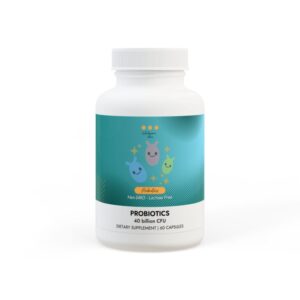 Key Features:
Key Features:
Replenishes beneficial bacteria in the gut.
Supports immune system function.
Improves symptoms of IBS, such as bloating and diarrhea.
Available in various forms: capsules, powders, and fermented foods.
Real-Life Example:
Jenna, a schoolteacher, often found herself getting sick and suffering from an upset stomach during stressful times.
She started taking a high-quality probiotic supplement and adding yogurt and kefir to her diet.
After a few months, Jenna’s digestion stabilized, and her immunity improved—she even made it through flu season without catching a cold!
5. Prebiotic Foods: Fuel Your Gut’s Good Bacteria
For anyone focused on long-term gut health, prebiotics are non-negotiable. These fibers feed the good bacteria in your gut, creating a thriving environment for them to flourish.
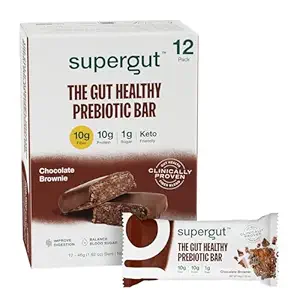 Purchase on Amazon
Purchase on Amazon
Key Features:
Supports the growth of beneficial gut bacteria.
Found in foods like bananas, onions, garlic, and asparagus.
Improves gut barrier function and reduces inflammation.
Works synergistically with probiotics for maximum impact.
Real-Life Example:
Tom, a fitness enthusiast, was looking to enhance his gut health naturally.
He began incorporating prebiotic-rich foods like green bananas and artichokes into his meals.
Over time, he noticed improved digestion and increased stamina during workouts, proving that prebiotics were a powerful addition to his diet.
6. Bone Broth: A Soothing Elixir for Gut Healing
If you’re dealing with leaky gut or frequent inflammation, bone broth could be a soothing and nutritious solution. Packed with collagen and amino acids, it supports the gut lining and promotes overall digestive health.
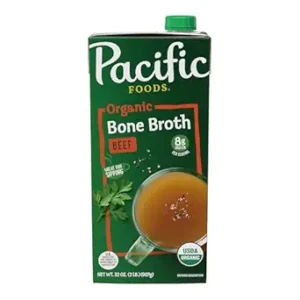 Purchase on Amazon
Purchase on Amazon
Key Features:
Rich in collagen, glutamine, and other gut-healing nutrients.
Helps repair and strengthen the gut lining.
Provides easily digestible protein.
Can be consumed as a beverage or added to soups and stews.
Real-Life Example:
Lisa, recovering from a period of high stress and poor eating habits, turned to bone broth for gut healing.
She sipped on a cup daily and incorporated it into her cooking.
Within a month, she felt less bloated and noticed that her skin—a reflection of her gut health—looked more radiant.
7. Fiber Supplements: Stay Regular, Stay Comfortable
If irregularity or constipation has you feeling off, fiber supplements can offer a convenient solution.
Whether in powder or capsule form, they help you maintain healthy bowel movements and support overall digestive health.
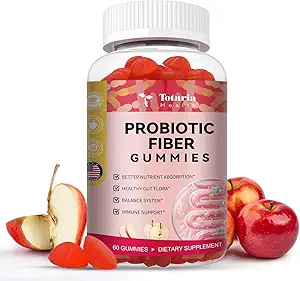 Purchase on Amazon
Purchase on Amazon
Key Features:
Promotes regular bowel movements.
Supports a healthy gut microbiome.
Available in soluble and insoluble forms.
Easy to incorporate into your daily routine.
Real-Life Example:
David, a truck driver with an unpredictable schedule, found himself battling irregular bowel movements.
He added a soluble fiber supplement to his water bottle each morning.
Not only did it improve his digestion, but it also helped him feel fuller, preventing unhealthy snacking on the road.
8. Fermented Foods: Natural Probiotic Boosters
For those who prefer a food-first approach, fermented foods are a delicious way to support gut health.
From sauerkraut to miso, these foods are rich in probiotics and other nutrients that promote a balanced gut microbiome.
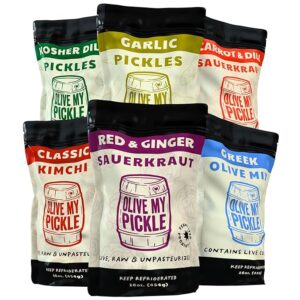 Purchase on Amazon
Purchase on Amazon
Key Features:
Provides live probiotics for gut health.
Includes a variety of options: kimchi, kombucha, miso, and more.
Enhances digestion and nutrient absorption.
Offers diverse flavors and textures to suit any palate.
Real-Life Example:
Nina, a culinary enthusiast, began experimenting with making her kimchi and kombucha at home.
She enjoyed the process and the health benefits: fewer digestive issues and more energy throughout the day.
Fermented foods became both a hobby and a health staple for her.
Conclusion
Transforming your gut health doesn’t have to be complicated. From digestive enzymes that ease meal-time discomfort to the holistic benefits of clean eating, exercise, and probiotic-rich foods, these tools are powerful allies in your wellness journey.
By incorporating even a few of these strategies, you can take meaningful steps toward improved digestion, better energy, and a healthier life.
Sources:
Scientific Studies on Digestive Enzymes
- Martinsen, T. C., et al. “The role of pepsin and other proteolytic enzymes in the development of gastric ulcer.” Scandinavian Journal of Gastroenterology, vol. 40, no. 10, 2005, pp. 887–893.
- O’Keefe, S. J. “The influence of diet on the gut microbiome.” Nature Reviews Gastroenterology & Hepatology, vol. 13, 2016, pp. 573–584.
Benefits of Clean Eating
- Marventano, S., et al. “Whole grain intake and its effects on health.” Nutrients, vol. 12, no. 10, 2020, article 3206.
- Satija, A., et al. “Health benefits of diets high in fruits and vegetables.” Annual Review of Public Health, vol. 37, 2016, pp. 57–78.
Exercise and Gut Health
- Clarke, S. F., et al. “Exercise and associated dietary extremes impact on gut microbial diversity.” Gut, vol. 63, no. 12, 2014, pp. 1913–1920.
- Allen, J. M., et al. “Exercise alters gut microbiota composition and function.” Gut Microbes, vol. 9, no. 4, 2018, pp. 286–295.
Probiotics and Prebiotics
- Gibson, G. R., et al. “Dietary modulation of the human colonic microbiota: introducing the concept of prebiotics.” Journal of Nutrition, vol. 125, no. 6, 1995, pp. 1401–1412.
- Hill, C., et al. “Expert consensus document: The International Scientific Association for Probiotics and Prebiotics consensus statement on the scope and appropriate use of the term probiotic.” Nature Reviews Gastroenterology & Hepatology, vol. 11, no. 8, 2014, pp. 506–514.
Bone Broth and Collagen for Gut Health
- Aslam, M. N., et al. “Bone health and healing through nutrition.” Nutrients, vol. 2, no. 6, 2010, pp. 636–661.
- Bello, A. E., et al. “The role of collagen in the pathophysiology of joint health.” Arthritis Research & Therapy, vol. 16, no. 6, 2014, article 466.
Fiber and Regularity
- Slavin, J. L. “Dietary fiber and body weight.” Nutrition, vol. 21, no. 3, 2005, pp. 411–418.
- McRorie, J. W. Jr., et al. “Fiber supplements and clinically meaningful health benefits: Moving beyond conventional fiber sources.” Nutrition Today, vol. 52, no. 2, 2017, pp. 73–78.
Fermented Foods
- Marco, M. L., et al. “Health benefits of fermented foods: microbiota and beyond.” Current Opinion in Biotechnology, vol. 44, 2017, pp. 94–102.
- Tamang, J. P., et al. “Fermented foods and beverages: An overview.” Food Research International, vol. 44, no. 1, 2011, pp. 123–140.

